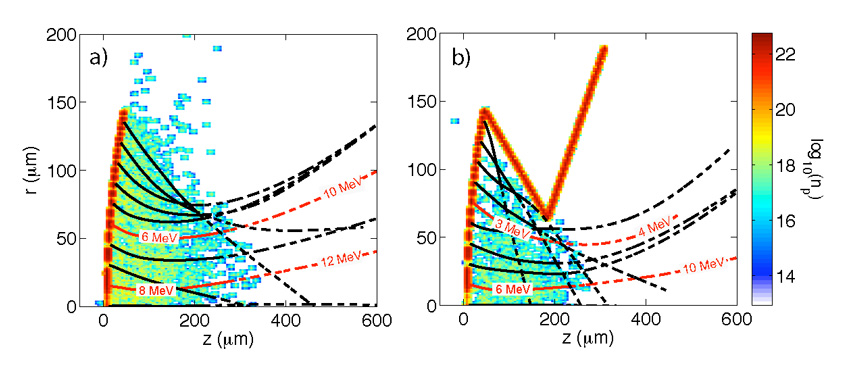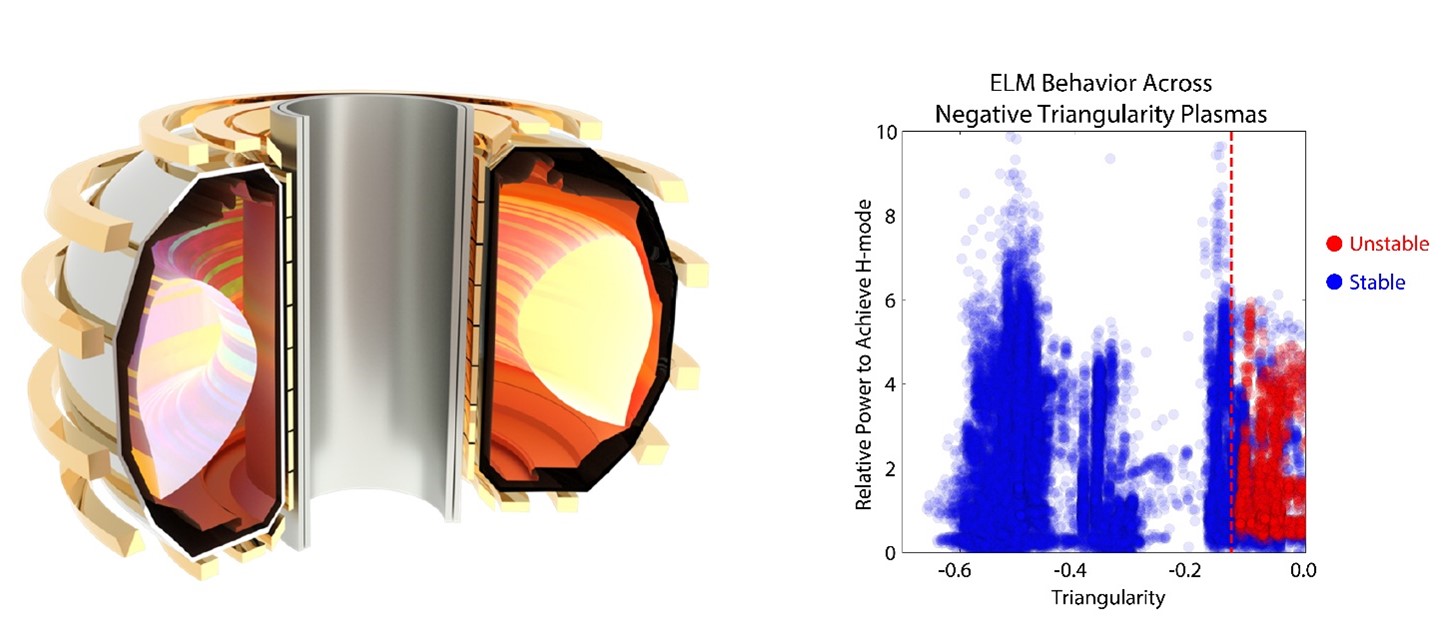Creating a Well-focused Laser-accelerated Proton Beam as a Driver for Proton Fast Ignition
Focusing of laser accelerated proton beams advances with a novel cone target design.

The Science
Developed a new understanding of how a quasi-neutral proton jet focuses and propagates though a focusing cone structure. Electric fields in both the proton jet and along the surface of the conical structure play a crucial role in controlling the focusing.
The Impact
An important requirement for the success of proton fast ignition is the generation of beams that are intensely focused, down to a diameter of tens of microns. This work demonstrates the ability to generate and focus a short-pulse laser accelerated proton beam to these approximate requirements, having the necessary 5-15 MeV energy spectrum, and in a conical geometry of relevance to proton Fast Ignition.
Summary
Recent progress in generating high energy (> 50 MeV) protons from intense laser-matter interactions (1018 – 1021 W cm-2) has opened new areas of research, with applications in medical imaging, astrophysics, high energy density physics, and ion-proton beam fast ignition Inertial Fusion Energy. Rapid advances in these areas will be driven by improved focusing technologies. This research reports the first investigation of the generation and focusing of a proton beam using a novel cone-shaped design, relevant to conceptual proton fast ignition. In a Nature Physics article and subsequent theory and simulation papers, it is demonstrated that focusing is strongly affected by the electric fields in the proton jet. It is also found that with a cone target, the sheath electric field effectively “channels” the proton beam through the open cone tip, substantially improving the focusing properties. These results agree well with both theory and particle simulations and are critical for providing the physics basis for developing future target designs for proton fast ignition inertial fusion energy.
Contact
Mark Foord
LLNL
Livermore, CA
foord1@llnl.gov
Farhat Beg
University of California, San Diego
fbeg@ucsd.edu
Funding
DOE Office of Science, Fusion Energy Sciences program
Publications
T. Bartal et al., “Focusing of short-pulse high-intensity laser-accelerated proton beams,” Nature Phys. 8, 139-142 (2012).
C. Bellei et al., “Electron and ion dynamics during the expansion of a laser-heated plasma under vacuum,” Phys. Plasmas 19, 033109 (2012).
M.E. Foord et al., “Proton trajectories and electric fields in a laser-accelerated focused proton beam,” Phys. Plasmas 19, 056702 (2012).
Highlight Categories
Program: FES
Performer: University , DOE Laboratory



